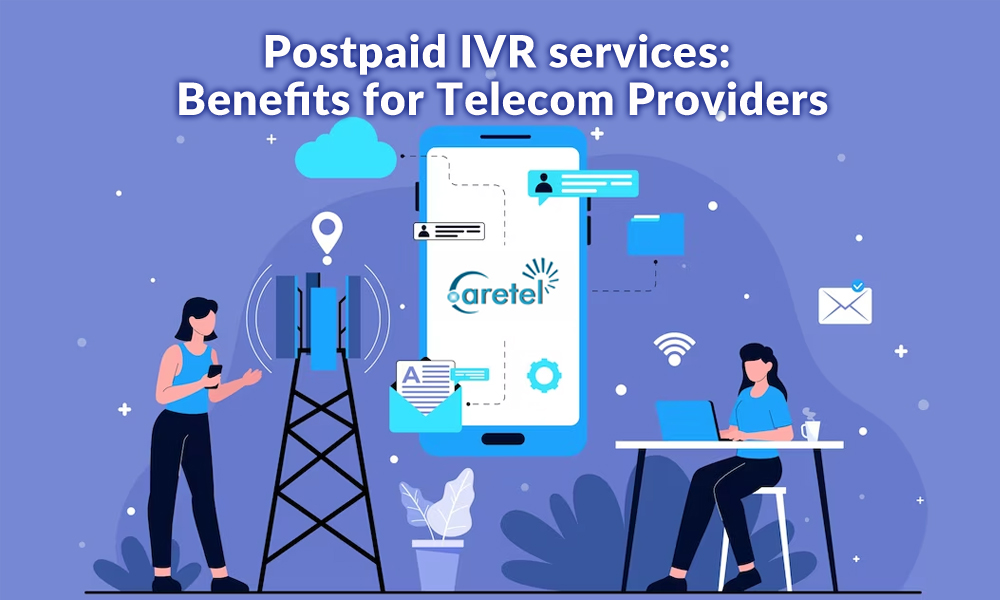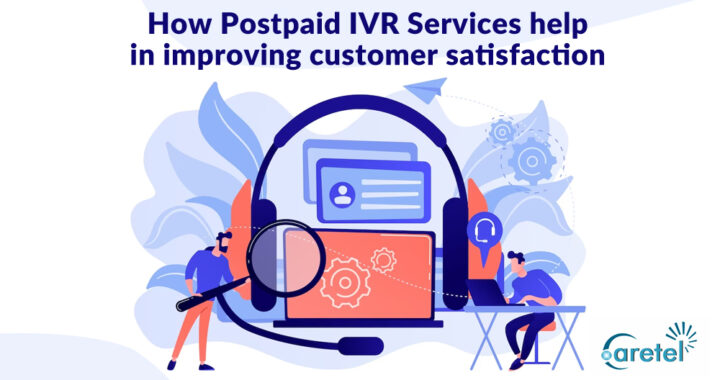In the ever-evolving landscape of telecommunications, companies are continuously striving to provide the best possible services to their customers. One of the innovative solutions that has revolutionized customer experience is Postpaid Interactive Voice Response (IVR) services. postpaid IVR Services USA are designed to streamline and simplify the management of postpaid mobile accounts, offering customers a convenient and efficient way to handle their billing, payments, and account inquiries. This technology not only benefits customers but also empowers telecom providers to optimize their operations and enhance customer satisfaction.
Postpaid IVR Services USA: Advantages For Customers
Customers have a limited amount of time and multiple options in the digital age. Customers must remain at the centre of corporate strategy, and companies must come up with quick solutions for their concerns if they want to stay ahead of the curve. Over time, providing a wonderful customer experience has grown in importance as a factor in determining an organization’s success and reputation. Voice contacts with businesses continue to be one of the most popular communication routes for consumers even as organisations all over the world transition to digital communication.
1. Convenience: One of the primary benefits of postpaid IVR services is the convenience they offer to customers. Instead of waiting in long queues or navigating through multiple web pages, customers can simply dial a dedicated number and access the information they need using voice commands or keypad inputs. This convenience is particularly valuable for on-the-go individuals who need quick access to their account details.
2. 24/7 Accessibility: Postpaid IVR services are available round the clock, providing customers with the flexibility to manage their accounts at any time, regardless of business hours. This eliminates the frustration of having to wait for a customer service representative during peak hours and ensures that customers can resolve their issues promptly.
3. Efficient Issue Resolution: With postpaid IVR services USA, customers can perform tasks independently, such as checking their bill amount, due date, or recent usage. This not only empowers customers but also reduces the load on customer service agents, allowing them to focus on more complex inquiries and providing faster resolution for critical issues.
4. Personalized Experience: Modern IVR systems often incorporate data analytics and customer profiling, enabling a personalized experience. The IVR system can recognize the caller and tailor responses based on their history, preferences, and previous interactions. This adds a layer of personalization that enhances the overall customer experience.
Postpaid IVR services: Benefits For Telecom Providers

1. Operational Efficiency: By automating routine tasks such as bill inquiries and payments, telecom providers can significantly improve their operational efficiency. This enables them to allocate their human resources more effectively to address complex issues that require specialized attention.
2. Cost Savings: Implementing postpaid IVR services can lead to substantial cost savings for telecom companies. The reduction in call center traffic and the ability to handle a higher volume of inquiries without hiring additional staff translates into lower operational costs.
3. Data Insights: Postpaid IVR services generate a wealth of data regarding customer behavior, preferences, and pain points. Telecom providers can analyze this data to gain insights into customer trends, allowing them to make informed decisions about service offerings, pricing strategies, and customer engagement initiatives.
4. Scalability: IVR systems are inherently scalable, making it easier for telecom providers to handle fluctuations in call volume. Whether it’s a sudden surge in inquiries or routine traffic, IVR systems can adapt to the demand without compromising the quality of service.
Challenges And Future Directions For OSS Billing System
While postpaid IVR services offer numerous benefits, some challenges need to be addressed. One of the key concerns is ensuring a seamless and user-friendly experience. IVR systems need to be designed with intuitive menus, clear instructions, and efficient routing to avoid frustrating customers with long and complex interactions.
To address these challenges, telecom companies are investing in advanced technologies such as natural language processing (NLP) and speech recognition. These technologies aim to make interactions with IVR systems even more intuitive by allowing customers to speak naturally and receive accurate responses.
Looking ahead, the integration of artificial intelligence (AI) and machine learning (ML) holds great promise for OSS billing system. AI-powered IVR systems can learn from customer interactions over time, continually improving their responses and anticipating customer needs. This could lead to highly personalized and context-aware interactions, further enhancing the customer experience.
In conclusion, postpaid IVR services have transformed the way customers interact with their telecom providers. The convenience, accessibility, and efficiency they offer have revolutionized account management and issue resolution. For telecom companies, these services represent an opportunity to optimize operations, reduce costs, and gain valuable insights into customer behavior. As technology continues to advance, the future of postpaid IVR services looks even more promising, with AI and ML poised to take customer interactions to new heights of personalization and effectiveness.

